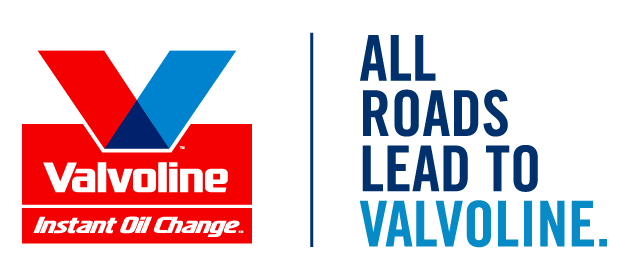Back to employers
Retail & Customer Service
The retail and customer service industry in the U.S. goes far beyond storefronts and shopping malls. With the continued growth of e-commerce and omnichannel experiences, it’s one of the most accessible and fast-changing sectors you can enter.
Roughly half of all Americans have worked in retail at some point in their lives — and for good reason. It’s one of the largest employment sectors in the country, with job opportunities available in every state and across nearly every product or service you can think of.
You’ll find careers in areas like:
- Grocery and beverage retail
- Gas stations, auto parts, and repair chains
- Home improvement and garden centers
- Clothing and footwear stores
- Department stores and big box chains
- Furniture and home goods
- Small businesses and specialty shops
- Luxury and designer retail
- Online and direct-to-consumer brands
And many more!
Customer service is just as broad. These roles exist across all retail environments, as well as industries like hospitality, travel, banking, and insurance. Whether you’re helping someone find the right product, resolve a billing issue, or navigate a booking, great service skills are always in demand.
A Flexible Pathway
One of the biggest benefits of working in retail or customer service is flexibility. From weekend shifts that fit around school to full-time positions with career advancement potential, there are options for every lifestyle.
Many roles are open to students and first-time job seekers, with no formal qualifications required. Others can lead into specialized fields like merchandising, buying, logistics, or management.
Some global brands also offer transfer programs or opportunities to work abroad — making this a career path that could take you places, literally.
No matter where you start or what you study, retail and customer service can be a launchpad to gain real-world experience, build confidence, and grow your skills in a fast-paced, people-focused environment.
What You Could Do
Job roles in the industry are varied. Some areas may require specialist qualifications, particularly in fashion design or high-end/senior retail or customer service roles. There are also lots of opportunities to grow a career through entry-level positions.
Here’s a look at some of the top jobs you could pursue:
- Retail Assistant: Retail Sales Assistants are responsible for providing customers with a positive, informative and engaging shopping experience. They may also assist with the coordination and training of other staff, depending on their experience within a given store environment.
- Retail Manager: Retail Managers run a store or group of stores successfully. Their day is a mix of working across different business areas, including front-of-store, storage and warehouse, back-office administration, finance and budgeting. They are responsible for ensuring their staff give excellent customer service and monitoring the financial performance to ensure the store achieves Key Performance Indicators (KPI). They may also handle customer complaints and be responsible for stock orders.
- Retail Buyer: Retail Buyers are responsible for considering which goods will sell well in particular locations and what prices customers are prepared to pay. They spend a lot of their time researching customer demands and trends by processing store sales and inventory reports. They then use this data to make informed decisions on what stock to order and how much. They can work for a high-street retailer, department stores, warehouses and supermarkets.
- Customer Service Assistant: Customer Service Assistants are the first point of contact between a business and customers. They are responsible for assisting customers to do business with the organisation, such as making a purchase, placing an order, getting advice, making a complaint or finding the information they need. They need to be knowledgeable about the processes of the business and services offered to ensure they offer customers a valuable experience.
- Customer Service Manager: Customer Service Managers oversee a team or teams of customer service assistants and provide vital support to do their jobs well. This may include giving problem-solving resources, answering complicated or unusual customer requests, hiring and training new staff and providing human resource support, managing KPIs, policies and procedures.
- Retail Wholesale & Logistics: In wholesale distribution, goods arriving from a manufacturer are first inventoried, and arrangements are made for shipping goods to the point of sale. You could work as Logistics Manager, Warehouse Manager, Delivery Driver, Accountant and Wholesale Advisor in these roles. It’s a vast component of the retail sector that essentially ensures stores have all the products they need to serve customers.
These job roles are only just scratching the surface!
Each industry segment will also include administrative and other support functions, including marketing, communications, human resources, and accounting.
As more retailers move to deliver online experiences, there are increasing roles for web development, web store management, marketing and online customer service support.
Graduate Employment and Gender Split
A degree isn’t essential for every career pathway in most retail and customer service sectors.
Knowing what graduate employment looks like can help set your expectations and make further decisions.
There’s no set degree for retail and customer service but certain fields may help you secure senior roles or lead to graduate-entry careers in some huge sectors, including fashion, marketing, economics, commerce and logistics, or hospitality and tourism.
The National Association of Colleges and Employers tracks graduate employment across different industry sectors.
Here’s a look at recent outcomes data for graduates in 2019:
- Liberal Arts (including Fashion) Graduates in full-time employment: 53.9%
- Consumer Sciences in full-time employment: 43.9%
- Business, Management, Marketing and Related ServicesGraduates in employment overall: 68.9%
Keep in mind that this doesn’t account for graduates working part-time and/or who may have continued to higher studies; these are promising percentages!
Gender Split
The gender split across the industry depends on the segment of the sector you work within, but it’s relatively evenly split across the industry:
Average Salary
Current surveys in the sector indicate the median salaries for full-time roles in this industry as:
- Entry-level Retail Roles: $27,500-$39,800
- Experienced Retail Roles: $34,100-$49,000
- Retail Manager Roles: $46-$70,000
- Entry-level Customer Service Roles: $31,500-$46,100
- Customer Service Manager Roles: $52,400-$68,900
Salaries can be pretty varied, with lower expectations for entry-level roles.
Salaries are also determined by several factors, including:
- The segment of the industry you work within.
- Your job title and seniority.
- The amount of experience you have.
Location, some rural areas may pay less than roles in main cities
Industry Growth
According to the Bureau of Labor Statistics, overall employment of retail sales workers is projected to show little or no change between now and 2029.
The biggest disruptor to the industry and job growth has been the continued growth of online retail, but this has enabled new areas of career pathways to develop. This is especially the case within online retail marketing and web design/management, customer service, and delivery services.
It is expected that competition from online sales will lead to employment declines in brick-and-mortar retail stores.
Work in the industry is expected to increase slightly by 2024, with the most common jobs – retail assistants and retail managers – seeing continued growth.
Storepersons and Wholesale roles are expected to grow by up to 14% by 2024, with the ongoing upward trend of online shopping across all retail sectors.
Customer service roles by phone and online chat are also expected to increase as more retailers move online and need to meet the demand for 24/7 shopping.
Advertising, marketing and public relations roles are also expected to grow in the sector – again, due to online shopping and more businesses seeking to reach bigger target audiences with potentially international customer bases.
Qualifications and Entry Pathways
Entry pathways are varied and will depend heavily on the type of roles you want to get into.
For example, highly specialised and professional roles will typically require at least a bachelor’s degree, along with some postgraduate qualifications plus experience.
The degree major you choose will also depend on the segment of industry you’re specifically interested in by some good programs to look at include:
- Consumer Sciences
- Business and Management
- Fashion Design
- Retail Merchandising
- Economics, Commerce and Wholesale Trade
Other pathway options might include:
- Scoring an apprenticeship or traineeship: You can work to gain industry-specific qualifications alongside your certificate of education and work experience through an apprenticeship in the industry.
- Work experience once you leave school: You can apply for work experience and school-leaver programs in entry-level positions and work your way up over time. Many organizations will also support you to gain further professional qualifications. You’ll need a robust skill set and good grades in Maths and English as a minimum.
Requirements will depend on the type of role you want and the company – so make sure you do some research.
Whatever your circumstances, grades or preferred way forward – there’s a qualification pathway that will work for you.
Best Places to Study
Where you choose to study will be dependent on a range of factors, but some universities are rated higher than others for certain subjects.
Here are the top-rated universities for Fashion:
- Fashion Institute of Technology (FIT), New York
- Parsons The New School, New York
- Pratt Institute, New York
- Savannah College of Art and Design (SCAD)
- Kent State University
- Drexel University, Philadelphia
Here are the top-rated universities for Economics and Commerce:
- Harvard University
- Massachusetts Institute of Technology
- University of California–Berkele
- Stanford University
- University of Pennsylvania
- University of Chicago
- London School of Economics and Political Science
- Columbia University
Where to Learn More
You can find out more about different retail and customer service pathways through professional bodies and organisations advocating for careers in the sector.
Some good places to start include:
And many more!
Each state will also have several professional organisations that can help you learn more about the industry, network, and develop your career.




